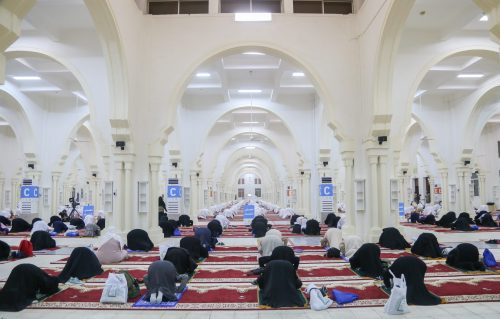Dr Garba Umar-Kangiwa, a member of the Kebbi medical team, on Thursday, assured the pilgrims of adequate first-aid at Muna, Arfat and Muzdalifah towards a successful Hajj exercise.
By Muhammad Lawal
Dr Garba Umar-Kangiwa, a member of the Kebbi medical team, on Thursday, assured the pilgrims of adequate first-aid at Muna, Arfat and Muzdalifah towards a successful Hajj exercise.
He stated this in an interview with the News Agency of Nigeria (NAN) in Makkah, Kingdom of Saudi Arabia.
The medical expert assured that in case of any eventuality at Muna, Arfat and Mudzalifah, the team would be readily available to provide the necessary first-aid treatment and subsequently convey the patients with complicated illness to other hospitals.
“As I am talking to you, we are working round the clock to see how we can assign a health expert to every tent for quick response, on the alternative, telephone numbers will be provided in every tent for easy access.
“We want to ensure that every health worker is supplied with enough medicine for onward disbursement to the patients.
“We must appreciate the Kebbi Pilgrims Board for procuring and supplying enough medicine for the treatment of not only Kebbi pilgrims but other states too do come by to be attended to.
“We are happy that in this year’s Hajj, the pilgrims board has supplied enough medicine to ensure that pilgrims are well taken care of more than in previous years,” he said.
Umar-Kangiwa advised the pilgrims not to overstretch themselves, especially that the proper Hajj exercise was due to commence by Thursday, 8th of Dhul-Hajj.
“This will give the pilgrims the strength and ability to perform the Hajj with strength and vigour.
“Those suffering from high blood pressure, diabetes, asthma or any other diseases and his/her drugs have finished should kindly come and explain so that he/she can be reimbursed with similar medicine,” he advised.
Umar-Kangiwa admonished asthmatic patients to be cautious of dusty environments during the Hajj exercise and always go along with their inhalers to avoid sudden attacks.
He identified body pain due to stress, catarrh due to air conditioners, dislocation due to slippery toilets, heat weather, fever, dysentery and ulcer, among others, as some of the sicknesses mostly affecting the pilgrims.
The expert said illnesses such as high blood pressure and diabetics were illnesses affecting the pilgrims right from their homes but some didn’t know that they were inflicted with the disease, until when they arrived in Saudi Arabia.
He, however, recalled that three pilgrims from the state, two males and a female, had lost their lives not because of negligence on the side of the health workers.
Umar-Kangiwa assured that the health personnel had done their best to rescue their lives but they had reached their destined periods. (NAN)




